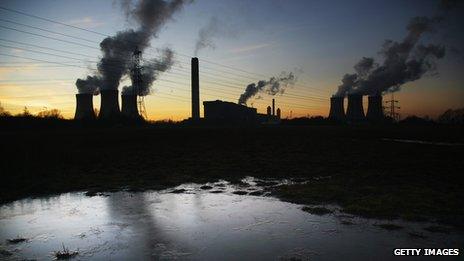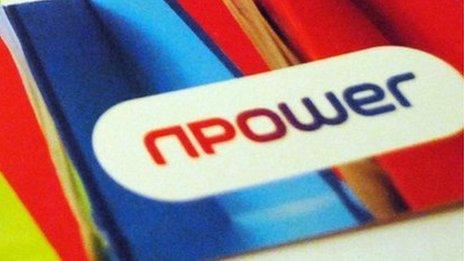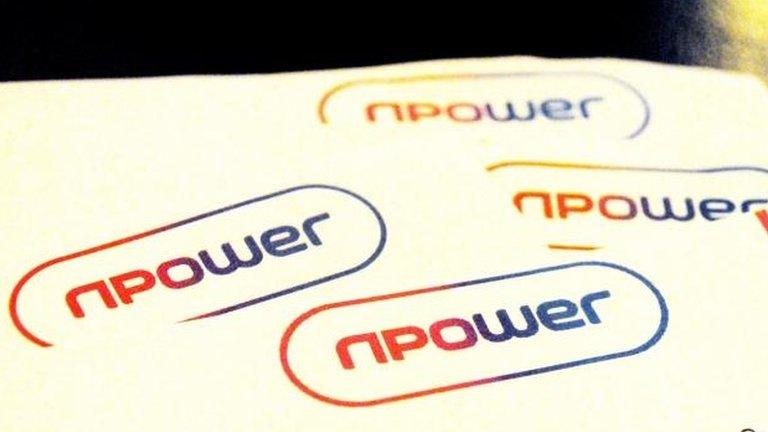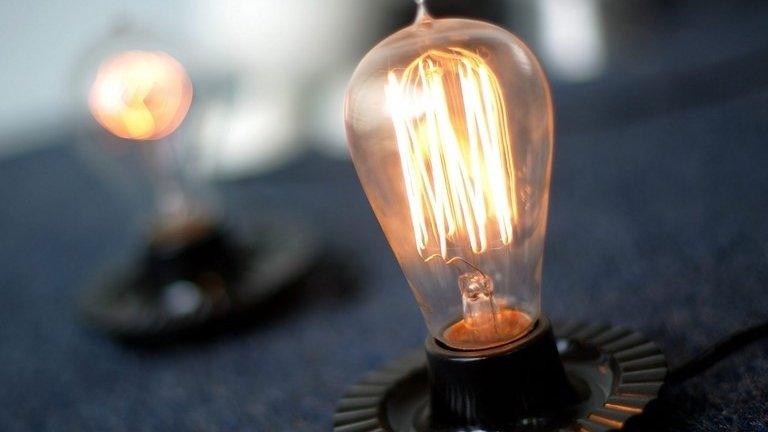Ofgem accuses Npower of 'misleading' report
- Published

Npower claims the cost of transporting energy is about to rise
A report by power supplier Npower, claiming bills will rise due to higher energy distribution costs, has been dismissed by regulator Ofgem as "misleading".
Npower, one of the UK's big six suppliers, said the report was designed to "shine a light" on company costs.
In it, the company argues that energy suppliers make small profits and have little control over customer bills.
But Ofgem said that some of the data used was "incorrect and misleading".
Npower later put out a correction to its figures.
In its original analysis, Npower said the cost of transporting gas and electricity - so-called network costs - would increase from £295 per customer to £314 between 2015 and 2020.
But Ofgem, which regulates that side of the industry - and sets the price controls - said those figures were wrong.
It said that after this year, network costs per household "are expected to remain broadly flat in real terms".
'Correction'
Ofgem said it offered to help Npower improve the accuracy of its numbers.
"It is disappointing that they did not engage fully with us," the spokesman said.
Paul Massara: Npower report "gives the facts"
But Paul Massara, boss of Npower, told the BBC that his company had engaged with Ofgem. "We met them last week," he told Radio 4's Today programme.
He said his company had a different opinion from Ofgem, and argued that network costs would increase as a percentage of household bills as efficiencies reduced overall energy use.
"This report is about giving the facts," he said. "A lot of myths have been bandied about recently."
In a later correction to its figures, Npower cut its projections for increased network costs.
"On further discussion with Ofgem we consider that the total increase in real terms of energy transportation costs is in the region of £5 to £10 per dual fuel customer over the period 2014 to 2020, about £15 lower that we had earlier calculated," a spokesman said.
Mr Massara was also critical of Labour's promise to freeze energy bills for 20 months if it wins the next election.
"It doesn't help consumers," he said.
"What's going to happen afterwards? Ed Miliband cannot control the commodity markets, which set 60% of the price," he told the BBC.
He said the policy was already having "a dramatic effect" and was freezing investment in the industry.
Energy waste
In its report, Npower also sought to persuade its customers that it does not make large amounts of money.
"There is no hidden profit," said Mr Massara. He told the BBC that Npower had an "aspirational" profit margin of 5%, but had only achieved a 3.5% margin in 2012.
On the power generation side of the business, he said Npower made a loss of £59m in the first nine months of last year.
In the report, Inside the Cost of Energy, Npower said prices were not just down to the "big six" firms. More than 140 companies were involved in the industry in the UK, it said, including more than 80 who trade energy products on the markets.
Mr Massara argues in the report that the unit price of electricity in the UK is one of the lowest in Europe.
"But bills are high because British houses waste so much energy," he said. "We do need to think [more] about energy waste".
Last November, the consumer watchdog Consumer Futures said Npower had received the highest number of complaints per customer.
In a three-month period in the summer, it had received 202 complaints per 100,000 customers, more than five times its nearest rival.
Last month, the company was fined £3.5m by Ofgem, for breaching sales regulations.
- Published20 December 2013

- Published19 November 2013

- Published27 March 2014
